Key Takeaways
1. Embrace the art of thinking creatively and independently
The purpose of computing is insight, not numbers.
Creative thinking is essential. In science and engineering, the ability to think creatively and independently is crucial for innovation and problem-solving. This involves looking at problems from multiple angles, questioning assumptions, and being willing to explore unconventional solutions.
Develop your own style. By cultivating a unique approach to problem-solving, you can contribute fresh perspectives to your field. This may involve:
- Combining ideas from different disciplines
- Challenging established methods
- Seeking inspiration from unexpected sources
- Embracing failure as a learning opportunity
Practice continuous reflection. Regularly examine your thought processes and decision-making. Ask yourself:
- Why do I believe what I believe?
- What assumptions am I making?
- How can I approach this problem differently?
2. Cultivate a growth mindset and adapt to technological change
We live in an age of exponential growth in knowledge, and it is increasingly futile to teach only polished theorems and proofs.
Embrace lifelong learning. The rapid pace of technological advancement requires a commitment to continuous learning and adaptation. This involves:
- Staying current with developments in your field
- Being open to new ideas and methods
- Actively seeking opportunities to expand your knowledge and skills
Anticipate future trends. Develop the habit of looking ahead and considering how emerging technologies might impact your field. This foresight can help you:
- Identify new opportunities for innovation
- Prepare for potential disruptions in your industry
- Make informed decisions about your career path
Cultivate adaptability. Be willing to change your approach and learn new skills as needed. This might involve:
- Cross-training in related disciplines
- Experimenting with new tools and technologies
- Collaborating with professionals from diverse backgrounds
3. Master the fundamentals to innovate and solve complex problems
Get down to the fundamentals of a field, since it implies you must examine things many ways before you can decide what is fundamental and what is frills.
Build a strong foundation. A deep understanding of fundamental principles is essential for creative problem-solving and innovation. This involves:
- Mastering core concepts in your field
- Understanding the underlying theories and models
- Developing strong analytical and critical thinking skills
Apply fundamentals creatively. Use your knowledge of basic principles to approach complex problems in novel ways:
- Combine concepts from different areas to generate new insights
- Break down complex problems into simpler components
- Identify patterns and connections across seemingly unrelated domains
Continually refine your understanding. Regularly revisit and deepen your grasp of fundamental concepts:
- Seek out new perspectives on familiar topics
- Engage in discussions and debates with peers
- Apply your knowledge to real-world problems to test and expand your understanding
4. Harness the power of digital tools and simulation
Nine out of ten experiments are done on computers these days.
Leverage computational power. Modern science and engineering increasingly rely on digital tools and simulation for research and problem-solving. Embrace these technologies to:
- Explore complex systems and scenarios
- Test hypotheses and design concepts quickly and cost-effectively
- Analyze large datasets and identify patterns
Balance digital and physical experimentation. While computer simulations are powerful, they should complement rather than replace physical experiments:
- Use simulations to guide and refine physical experiments
- Validate simulation results with real-world data when possible
- Recognize the limitations and potential biases of digital models
Develop computational thinking skills. Cultivate the ability to frame problems in ways that can be effectively addressed through computation:
- Break down complex problems into algorithmic steps
- Identify opportunities for automation and optimization
- Consider how to represent and manipulate data efficiently
5. Understand the limitations of expert knowledge and paradigms
If an expert says something can be done he is probably correct, but if he says it is impossible then consider getting another opinion.
Question established paradigms. Recognize that even widely accepted theories and methods can be flawed or limited:
- Be open to alternative perspectives and approaches
- Look for evidence that challenges prevailing views
- Consider how changing contexts might affect the validity of established knowledge
Seek diverse perspectives. Engage with experts from different fields and backgrounds:
- Collaborate across disciplinary boundaries
- Attend conferences and workshops outside your immediate area of expertise
- Read widely to expose yourself to diverse ideas and approaches
Cultivate humility and skepticism. Acknowledge the limitations of your own knowledge and that of others:
- Be willing to admit when you don't know something
- Critically evaluate claims and evidence, regardless of the source
- Encourage open dialogue and constructive criticism in your work environment
6. Develop critical thinking skills to navigate unreliable data
90% of the time, the next independent measurement will fall outside the previous 90% confidence limits!
Question data quality. Develop a healthy skepticism towards data and its interpretation:
- Examine the methodology behind data collection and analysis
- Consider potential sources of bias or error
- Look for independent verification of important results
Understand statistical limitations. Recognize the inherent uncertainties in data and statistical analysis:
- Be aware of common statistical pitfalls and misinterpretations
- Consider alternative explanations for observed patterns
- Use multiple analytical approaches when possible
Contextualize data. Consider the broader context in which data is collected and interpreted:
- Examine historical trends and patterns
- Consider how changing definitions or measurement methods might affect data over time
- Look for corroborating evidence from different sources or disciplines
7. Balance specialization with interdisciplinary knowledge
An expert is one who knows everything about nothing; a generalist knows nothing about everything.
Develop deep expertise. Cultivate specialized knowledge in your chosen field:
- Master the core concepts, methods, and tools of your discipline
- Stay current with cutting-edge developments in your area
- Contribute to the advancement of knowledge in your specialty
Embrace interdisciplinary thinking. Complement your specialized knowledge with a broad understanding of related fields:
- Seek connections between your area of expertise and other disciplines
- Collaborate with professionals from diverse backgrounds
- Apply concepts and methods from other fields to your own work
Cultivate T-shaped skills. Develop a combination of deep expertise in one area and broad knowledge across multiple domains:
- Identify areas where your specialized knowledge can be applied to broader problems
- Develop skills that complement your core expertise, such as communication or data analysis
- Regularly explore new fields and ideas to expand your intellectual horizons
8. Recognize the importance of effective communication in science and engineering
We reason mainly by analogy.
Develop strong communication skills. The ability to clearly convey complex ideas is crucial for success in science and engineering:
- Practice explaining technical concepts to non-specialists
- Learn to create effective visualizations and presentations
- Develop writing skills for both technical and general audiences
Use analogies and metaphors. Leverage the power of analogy to make complex ideas more accessible:
- Draw connections between abstract concepts and familiar experiences
- Use visual metaphors to illustrate complex relationships
- Develop a repertoire of analogies for key concepts in your field
Tailor your communication. Adapt your message to your audience's background and needs:
- Consider the level of technical detail appropriate for each situation
- Use language and examples that resonate with your audience
- Be prepared to explain your ideas from multiple perspectives
9. Pursue continuous learning and self-improvement
Luck favors the prepared mind.
Cultivate curiosity. Maintain a genuine interest in learning and exploring new ideas:
- Ask questions and seek out new knowledge regularly
- Challenge yourself to learn about topics outside your comfort zone
- Engage in discussions and debates with colleagues and peers
Develop effective learning strategies. Optimize your approach to acquiring and retaining knowledge:
- Experiment with different learning techniques to find what works best for you
- Practice active recall and spaced repetition to reinforce important concepts
- Seek out opportunities for hands-on experience and practical application of knowledge
Set personal growth goals. Continuously strive to improve your skills and knowledge:
- Identify areas for improvement and set specific, measurable goals
- Seek feedback from mentors, colleagues, and peers
- Regularly reflect on your progress and adjust your approach as needed
10. Strive for ethical and responsible innovation
We must abandon the guided tour through the art gallery of mathematics, and instead teach how to create the mathematics we need.
Consider ethical implications. Recognize the potential impacts of your work on society and the environment:
- Anticipate potential unintended consequences of new technologies
- Consider the long-term effects of your innovations on different stakeholders
- Engage in discussions about the ethical dimensions of your field
Promote responsible innovation. Strive to create solutions that benefit society while minimizing harm:
- Incorporate principles of sustainability and social responsibility into your work
- Seek out diverse perspectives when developing new technologies or solutions
- Be transparent about the limitations and potential risks of your innovations
Engage with broader societal issues. Recognize the role of science and engineering in addressing global challenges:
- Consider how your work can contribute to solving pressing societal problems
- Participate in public discussions about the role of technology in society
- Advocate for evidence-based decision-making in policy and public discourse
Last updated:
FAQ
What's The Art of Doing Science and Engineering about?
- Focus on Learning: The book emphasizes learning how to learn, especially in science and engineering. Richard W. Hamming shares insights from his career, blending personal anecdotes with practical advice.
- Interdisciplinary Approach: Hamming advocates for understanding various disciplines broadly, encouraging creativity and innovation in problem-solving.
- Emphasis on Teamwork: The author highlights the importance of collaboration in complex projects, stating that teamwork is crucial for success in scientific endeavors.
Why should I read The Art of Doing Science and Engineering?
- Valuable Insights: Hamming provides knowledge from his experiences at Bell Telephone Laboratories, relevant for aspiring scientists and engineers.
- Practical Advice: The book offers strategies for improving learning and research, emphasizing the importance of curiosity and asking the right questions.
- Historical Context: Readers gain perspective on the evolution of scientific thought and technology, enriching their understanding of contemporary challenges.
What are the key takeaways of The Art of Doing Science and Engineering?
- Learning to Learn: Hamming stresses the importance of developing effective learning skills, essential for success in any field.
- Creativity and Originality: The book discusses cultivating creativity through practice and exposure to diverse ideas.
- Importance of Measurement: Hamming highlights the need for careful consideration of data collection and interpretation, applicable to research and personal development.
What are the best quotes from The Art of Doing Science and Engineering and what do they mean?
- "Luck favors the prepared mind.": Success often comes to those ready to seize opportunities, emphasizing preparation and hard work.
- "There is never time to do the job right, but there is always time to fix it later.": This quote reminds us to prioritize quality over speed in work.
- "An expert is one who knows everything about nothing.": This humorous definition critiques the narrow focus of specialists, encouraging a balance between expertise and general knowledge.
How does Hamming define creativity in The Art of Doing Science and Engineering?
- Creativity vs. Originality: Creativity involves combining existing ideas in novel ways, emphasizing the value of new connections.
- Process of Insight: The creative process includes recognizing problems, refining ideas, and moments of insight, often involving subconscious work.
- Cultivating Creativity: Hamming believes creativity can be developed through practice and exposure to diverse fields, encouraging new experiences and ideas.
What role does measurement play in Hamming's philosophy?
- Measurement Influences Outcomes: Metrics used to evaluate performance can shape behavior and results, applicable to research and personal development.
- Importance of Relevant Metrics: Hamming warns against relying solely on easily quantifiable metrics, advocating for thoughtful selection aligned with broader goals.
- Dynamic Range of Measurements: The choice of measurement scale can affect perceptions and outcomes, influencing interpretations of performance.
How does Hamming suggest we approach problem-solving in The Art of Doing Science and Engineering?
- Ask the Right Questions: Formulating the right questions is crucial for guiding research and problem-solving, as a well-defined problem is half-solved.
- Iterative Process: Solutions should be refined over time, revisiting earlier assumptions and adapting to new insights.
- Embrace Ambiguity: Tolerance for ambiguity allows exploration of unconventional solutions, enabling great thinkers to hold conflicting ideas simultaneously.
What is Hamming's view on teamwork in The Art of Doing Science and Engineering?
- Teamwork is Essential: Collaboration is increasingly important in modern scientific endeavors, with collective effort being crucial.
- Shared Success: Working with others enhances productivity and leads to greater satisfaction, outweighing the pursuit of fame.
- Respect for Contributions: Recognizing and valuing team members' contributions is important, as they may see their work differently.
What is Hamming's perspective on the future of education and training?
- Need for Adaptation: Education must evolve to meet changing societal and technological demands, as traditional methods may not suffice.
- Focus on Fundamentals: Mastering fundamental concepts is crucial, as they remain relevant despite technological advancements.
- Encouraging Creativity: Fostering creativity in education is essential for preparing students to tackle complex problems, prioritizing critical thinking and problem-solving skills.
How does Hamming view the relationship between science and philosophy?
- Science as a Descriptive Tool: Science describes how things happen but does not explain why, highlighting its limitations.
- Philosophical Implications: Considering the philosophical implications of scientific discoveries can lead to deeper understanding.
- Continuous Exploration: The pursuit of knowledge requires both scientific and philosophical inquiry, urging curiosity and open-mindedness.
What are Hamming's thoughts on the role of experts in society?
- Experts and Innovation: Experts may resist new ideas, hindering progress and innovation, as they are often certain they are right.
- Need for Generalists: A balance between specialists and generalists is crucial, as generalists provide valuable perspectives.
- Encouraging Open-Mindedness: Experts should remain open to new ideas and question their assumptions, fostering collaboration and breakthroughs.
How does Hamming suggest we cultivate creativity in The Art of Doing Science and Engineering?
- Practice and Exposure: Creativity can be developed through practice and exposure to diverse fields, encouraging new experiences.
- Combining Ideas: Creativity involves usefully combining unrelated ideas, emphasizing the value of new connections.
- Creative Process: The process includes recognizing problems, refining ideas, and moments of insight, often involving subconscious work.
Review Summary
The Art of Doing Science and Engineering is highly praised for its insights on creativity, problem-solving, and career development in scientific fields. Readers appreciate Hamming's wisdom, anecdotes, and advice on tackling important problems and adapting to change. The book is seen as inspirational and thought-provoking, especially in its later chapters. Some find the technical sections challenging, but most agree the overall message is valuable. Many recommend it for aspiring scientists and engineers, with some suggesting it should be reread periodically for its enduring relevance.
Similar Books
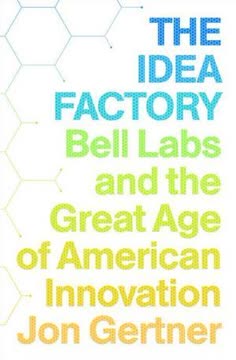



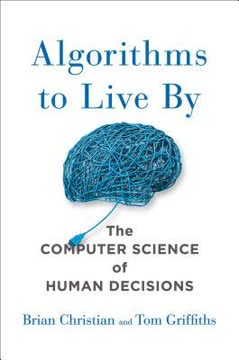
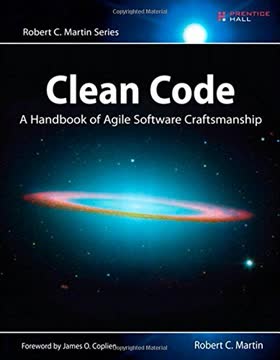
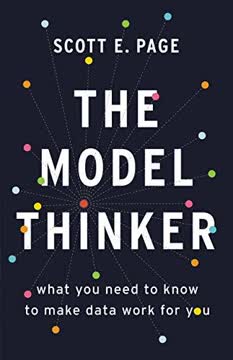
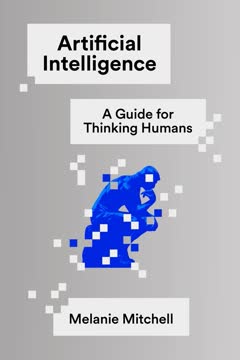
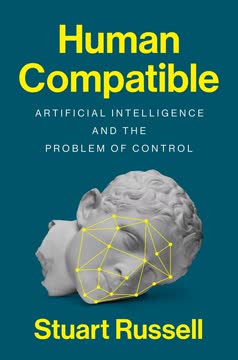

Download PDF
Download EPUB
.epub digital book format is ideal for reading ebooks on phones, tablets, and e-readers.




